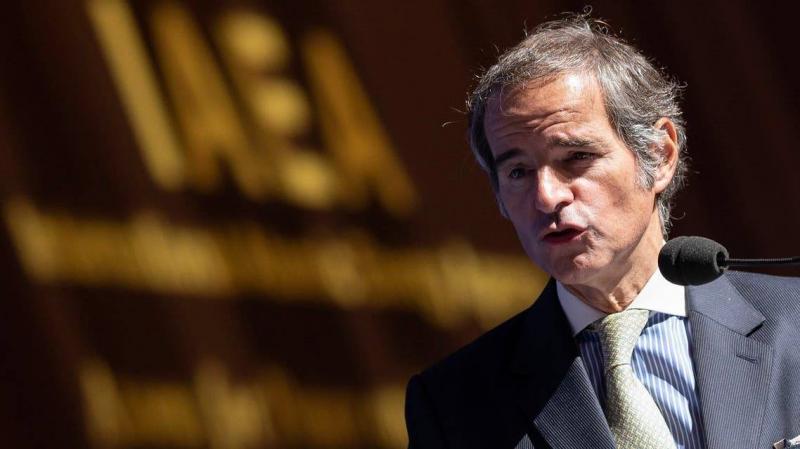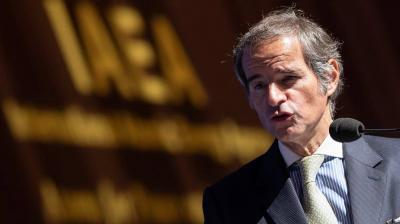At a time when the Vienna negotiations regarding Iran's nuclear program are progressing slowly, the Director of the International Atomic Energy Agency (IAEA), Rafael Mariano Grossi, stated on Wednesday in remarks to "Al-Arabiya" that the nuclear talks in Vienna will not succeed without the completion of inspection operations, noting that the primary beneficiary of the return of inspection operations is Iran.
**Guarantees for Other Parties**
Grossi clarified that inspecting Iran's nuclear facilities provides guarantees to other parties, pointing out that what is being discussed in Vienna is a return to the 2015 nuclear agreement. He also mentioned that Iran has increased its nuclear activities and exceeded all limits, adding that the role of the IAEA is to ensure the implementation of any agreement that may be reached.
**Every Gram of Uranium**
He emphasized that inspections of Iran's nuclear facilities will determine the nature of the Iranian program, stressing that Tehran should not close its doors to the agency's inspectors, and stated, "We want to know where Iran hides every gram of enriched uranium."
**"Good Agreement"**
For his part, Iranian Foreign Minister Hossein Amir-Abdollahian announced on Wednesday that an agreement had been reached that he described as a "good agreement" with the IAEA. The Iranian minister was quoted by Tasnim News Agency as saying that such an agreement "can alleviate some of the alleged concerns about Iran's peaceful nuclear program and lead to continued cooperation with the agency," while Iran has retreated and agreed to install new monitoring cameras at the Karaj facility.
In a related context, the Al-Alam channel reported Abdollahian saying that other parties agreed to have the new texts proposed by Iran on the table.
**New Cameras**
The television reported a source whose identity was not disclosed but was described as close to the Supreme National Security Council, stating that Tehran voluntarily allowed the installation of new cameras at the Karaj facility. The source added that Tehran will retain the new cameras scheduled to be installed at the TESA facility in the city of Karaj. The United Nations had called on the concerned parties to return to the nuclear agreement concluded in 2015.
After being stalled for five months, indirect negotiations between Iran and the United States resumed at the end of November in Vienna, but the European coordinator for the talks, Enrique Mora, described the discussions as very difficult, noting that there are some unresolved disputes.




